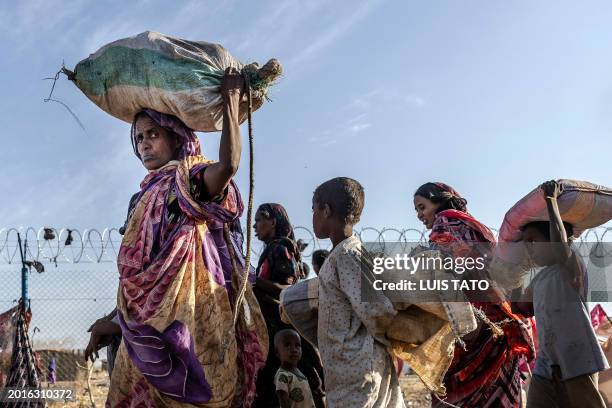KAMPALA, Uganda – In a high-stakes humanitarian operation, the Uganda People’s Defense Airforce (UPDAF) has carried out aerial deliveries of 600 metric tons of emergency food aid to war-affected communities in South Sudan’s Upper Nile State, where ground access remains blocked due to escalating violence.
The airdrops, conducted over the past week in coordination with South Sudanese officials and international relief agencies, are part of Uganda’s broader efforts to stabilize the region and avert a worsening humanitarian disaster in its conflict-stricken northern neighbor.
According to military officials in Kampala, the mission focused on reaching displaced civilians in areas cut off from road transport due to insecurity, flooding, and the breakdown of critical infrastructure.
The food supplies—comprising cereals, cooking oil, and high-energy biscuits—were sourced with the support of regional partners and airlifted using UPDAF C-130 transport aircraft.
“The situation on the ground is dire,” said a Ugandan defense spokesperson. “We’re stepping in where humanitarian convoys cannot go. Lives are at risk, and air delivery is the only viable lifeline right now.”
South Sudan’s Upper Nile region has witnessed renewed clashes in recent months between rival armed groups, triggering the displacement of thousands and exacerbating food insecurity in an already fragile area. Humanitarian agencies have warned of a looming famine if access to isolated populations remains restricted.
Uganda’s role in the relief mission underscores its growing influence in regional peace and stability efforts. It also reflects Kampala’s long-standing policy of proactive engagement in South Sudan’s affairs—rooted in historical, economic, and security ties.
“This is not just aid; it’s a message of solidarity,” said a senior official from Uganda’s Ministry of Foreign Affairs.
“Uganda remains committed to peace and the protection of civilians in South Sudan, even when the circumstances are complex and dangerous.”
The World Food Programme (WFP) and several NGOs have welcomed the operation, noting that air access—while costly—is essential to reaching cut-off communities. Satellite imagery and drone reconnaissance reportedly guided the drops to ensure supplies landed within reachable distance of civilian shelters.
As regional leaders prepare for the next IGAD summit, the humanitarian crisis in Upper Nile is expected to be on the agenda, with calls for expanded ceasefire enforcement and increased donor funding for relief operations.
For Uganda, the operation reflects not only humanitarian urgency but also a strategic investment in cross-border stability. With refugee flows and economic disruptions already spilling over, Kampala views a fragile South Sudan as a direct national concern.
This story is developing… Check back again soon..





